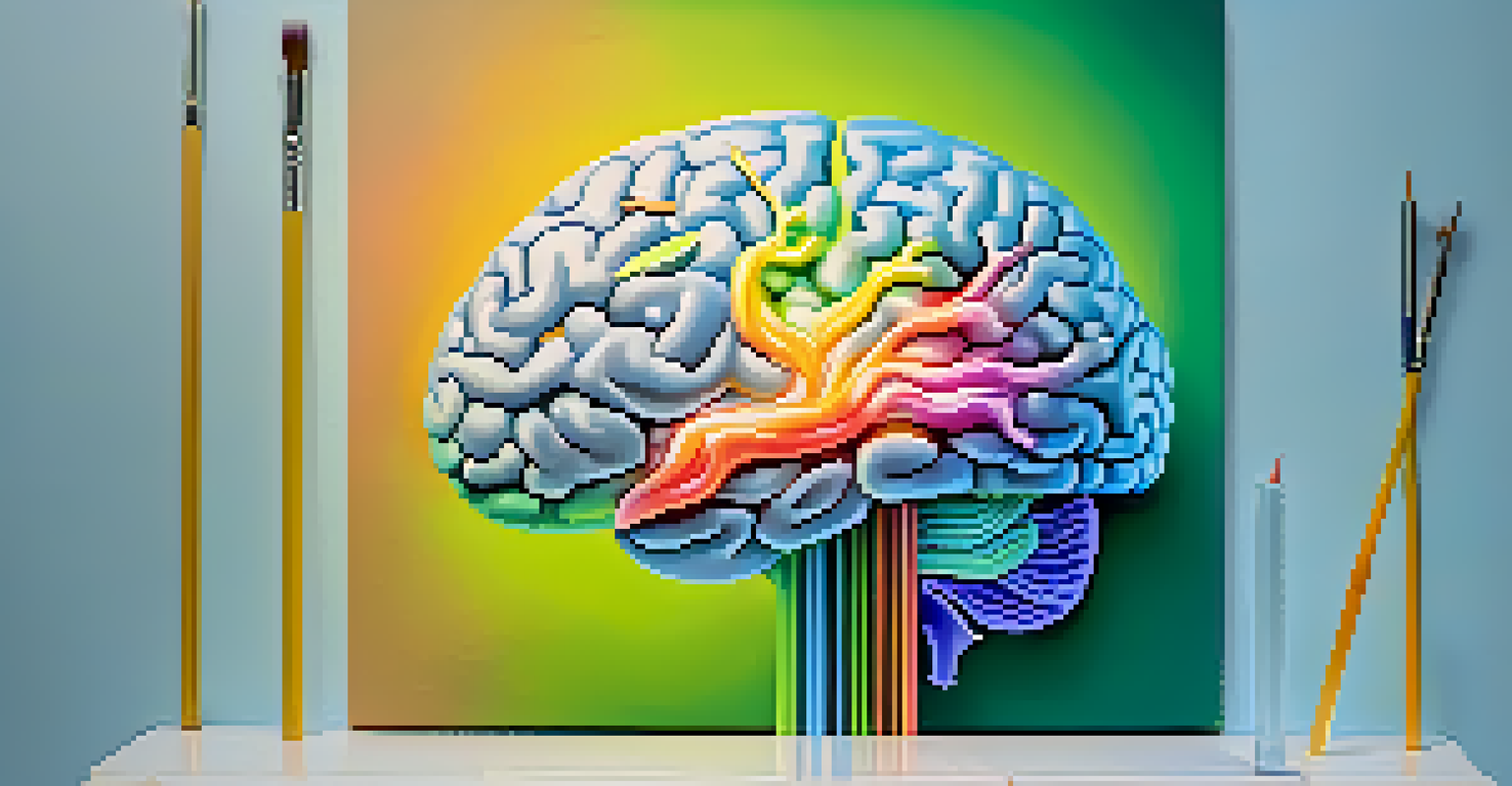Integrating Entheogens into Holistic Addiction Treatment Plans

Understanding Entheogens and Their Role in Healing
Entheogens are substances that facilitate spiritual experiences, often derived from plants or fungi. These natural compounds have been used for centuries in various cultures for healing and self-discovery. They can promote profound insights, helping individuals understand the root causes of their addiction.
The wound is the place where the Light enters you.
Using entheogens in a therapeutic setting can shift perspectives and highlight connections between mind, body, and spirit. This holistic approach can be especially effective for those feeling trapped in their addiction cycle. The goal is to foster a deeper understanding of oneself and one's behaviors.
Moreover, incorporating entheogens into treatment plans can enhance the overall therapeutic experience. By addressing both psychological and spiritual aspects, patients may find a more comprehensive path to recovery that resonates with them on multiple levels.
The Science Behind Entheogens and Addiction Recovery
Research has shown that certain entheogens can alter brain chemistry in ways that support addiction recovery. For example, substances like psilocybin and ayahuasca have been found to promote neuroplasticity, which is the brain's ability to adapt and change. This can be crucial for individuals looking to break free from addictive behaviors.

Additionally, these substances can help alleviate symptoms of anxiety and depression, which often accompany addiction. By addressing these underlying mental health issues, patients may be better equipped to handle cravings and triggers. This dual approach can lead to more sustainable recovery outcomes.
Entheogens Aid Addiction Recovery
Entheogens promote healing by facilitating profound insights and addressing both psychological and spiritual aspects of addiction.
While the science is still emerging, anecdotal evidence from therapy sessions suggests that entheogens can help patients process traumatic experiences and emotions linked to their addiction. This therapeutic potential makes them a compelling option in holistic treatment plans.
Creating Safe and Supportive Environments for Use
Safety is paramount when integrating entheogens into addiction treatment. It's essential to create a controlled environment where individuals feel secure and supported. This often includes the presence of trained facilitators who can guide the experience and provide emotional support.
Addiction is a symptom of an underlying issue, not the issue itself.
Setting is crucial; a calm, serene space can significantly influence the outcomes of an entheogenic experience. This might involve nature settings, quiet rooms, or even meditation spaces designed to foster relaxation and introspection. A supportive environment encourages openness and vulnerability during the experience.
Moreover, integrating aftercare and follow-up practices is vital. After an entheogenic session, individuals should have access to counseling or group discussions to process their experiences. This continuity of care helps reinforce insights gained during the session and supports long-term recovery.
Combining Traditional Therapies with Entheogenic Approaches
Integrating entheogens into holistic addiction treatment doesn't mean abandoning traditional therapies. Instead, it can complement methods such as cognitive behavioral therapy (CBT) or group therapy sessions. This multifaceted approach can provide patients with a range of tools to address their addiction.
For example, while traditional therapy may help individuals develop coping strategies, entheogens can facilitate deeper emotional healing. This combination can empower patients by providing them with both practical skills and profound insights into their behaviors. It’s like having a toolbox filled with different tools for different situations.
Safety and Support in Therapy
Creating a secure and supportive environment is crucial for the effective integration of entheogens in therapeutic settings.
Additionally, blending these approaches allows therapists to tailor treatment plans to individual needs. Each person's journey through addiction is unique, and offering a variety of therapeutic modalities can enhance the chances of successful recovery.
Cultural Considerations and Ethical Implications
When integrating entheogens into addiction treatment, it’s important to respect cultural contexts. Many entheogenic substances have historical significance in indigenous practices, and their use should honor these traditions. Approaching this integration with cultural sensitivity can enrich the therapeutic experience.
Ethical considerations also come into play, especially regarding consent and the potential for misuse. Patients must be fully informed about the substances being used and the possible effects. Establishing clear guidelines and fostering an open dialogue can help mitigate these risks.
Ultimately, creating a framework that acknowledges both the cultural roots of entheogens and the need for ethical practices will lead to more responsible use. This ensures that the therapeutic benefits are maximized while minimizing potential harm.
Personal Stories: Transformative Experiences with Entheogens
Many individuals have shared transformative experiences after participating in entheogenic therapies. For instance, a former addict might describe how a single session helped them confront painful memories and find a sense of peace. These stories highlight the potential of entheogens to catalyze meaningful change.
Personal narratives can also serve as powerful motivators for others struggling with addiction. Hearing about the journeys of others can inspire hope and encourage individuals to explore alternative treatment options. It’s a reminder that recovery is possible, even when it feels out of reach.
Cultural Sensitivity is Essential
Respecting the cultural contexts and ethical implications of entheogen use enhances the therapeutic experience and minimizes risks.
Moreover, these stories often emphasize the importance of community and support during the recovery process. Many people find strength in sharing their experiences and connecting with others on similar paths. This sense of belonging can be incredibly healing in itself.
Future Directions: Research and Acceptance of Entheogens
As interest in the therapeutic use of entheogens grows, so does the need for rigorous research. Future studies can help clarify the benefits and risks associated with their use in addiction treatment. This scientific foundation will be crucial for broader acceptance within the medical community.
In addition, increasing acceptance of entheogens may lead to more integrative treatment options becoming available. As more therapists and healthcare providers recognize their potential, we may see a shift towards holistic practices that include these substances. It’s an exciting time for the field of addiction recovery.

Ultimately, the future of entheogens in addiction treatment hinges on continued dialogue, research, and ethical practices. By fostering an environment of learning and respect, we can unlock new pathways for healing and recovery.